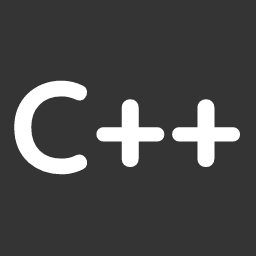Hello World

It's been seven years since I graduated, and it's been a heck of a journey, filled with adventures, learnings, meeting great people, and much more.
I still remember my first job. It was a back-end engineering role in Java. It was the language we picked up along-side C++ to learn object-oriented programming. The moment we started using it, I fell in love with it. The things we used to do in 100s of LOC were all condensed into a couple of LOCs max. I even used to question my teacher who would focus more on C++ and less on Java about why are we even learning C++? why should I write an entire 50+ LOC function to read in a file and process its lines when I can do the same thing in Java for under 5 lines? but he knew what was right for us. I was just excited to learn Java because it made our lives so much easier and in the process, I drifted apart from C++.
At the start of 2015, I started working on building a startup with my friends and I got involved in PHP. Those were some exciting times and PHP was great, you just create a script and drop PHP, HTML, CSS in one file, and voilà, your very first site is live. Years went by and I got the opportunity to work with many higher-level languages like Java, PHP, Python, etc.
If we look closely at any programming language, we will realize that it's just a wrapper, a highly sophisticated wrapper written on top of an existing programming language or an architecture to make the lives of the programmers easier and satisfy a certain scenario. For example, Javascript is a "wrapper" on top of C++ (V8 engine is written in C++). Similarly, PHP has majority of it's base written in C. And it makes sense, both from the productivity POV and maintenance POV, let me explain both separately.
From the productivity POV, you don't want developers to spend most of their useful time building up the boilerplate. Imagine people writing custom scripts for their company before starting to do any actual work. Or writing a web templating engine before they can start writing useful code.
From the maintenance POV, it will quickly become a nightmare if you re-invent the wheel, because the tech world moves fast and it's better to use something battle-tested and open-sourced as compared to creating something of your own. Furthermore, it is always better to let someone maintain and standardize a piece of software to have a better acceptance everywhere and that you focus on what's important and impactful.
A very good example of such abstraction and ease of use is when you work with things like tensors. Let's take a look at a very basic matrix operation in Python 3.x.
import numpy as np
dummy_array = np.array([[1, 2], [3, 4]])
# Print out transpose of dummy_array
print(dummy_array.T)
Now if you just want the transpose, then look no further. But, if you are like me, and you want to know what the hell happened? you will start to wonder how did all of this happen? how did we get an array? why is a nested Python list acting as a matrix? what is .T? what mathematical calculation went into finding the transpose? In reality, we got the job done because Python made it easy for us, but we missed out on so much learning and knowledge and my friend, this knowledge is what's necessary to go to the pinnacle. After all, it is said that the devil is in the details.
As a good software engineer, you should be able to apply your skills in any language but, you also have to become a master of one language, and you should be able to apply the concepts from mathematics, algebra, physics and all the other domains without opening Google every 5 minutes. Doesn't matter what that language is, but you have to be a master of it just like you are a master of your spoken language. You should be able to achieve hardware-level programming experience with this language and command it however you want. The computer is a piece of technology and is at your disposal to do whatever you want so, treat it like that.
I have had the pleasure of working with so many higher-level languages because they are so much productive, maintainable, and easier to learn. But I never really got the time to master one language. After careful consideration and after going through the thought process I described in this post, I have finally decided that I will go back to the basics and master C++ as my primary language. I will implement design patterns, data structures, design algorithms, and apply mathematics in C++. It's going to be painful, it's going to be long, but it will be definitely worth it. After all, I still remember how to implement a linked list in C++ which I took one entire week to learn in the university even though it's been over seven years.
